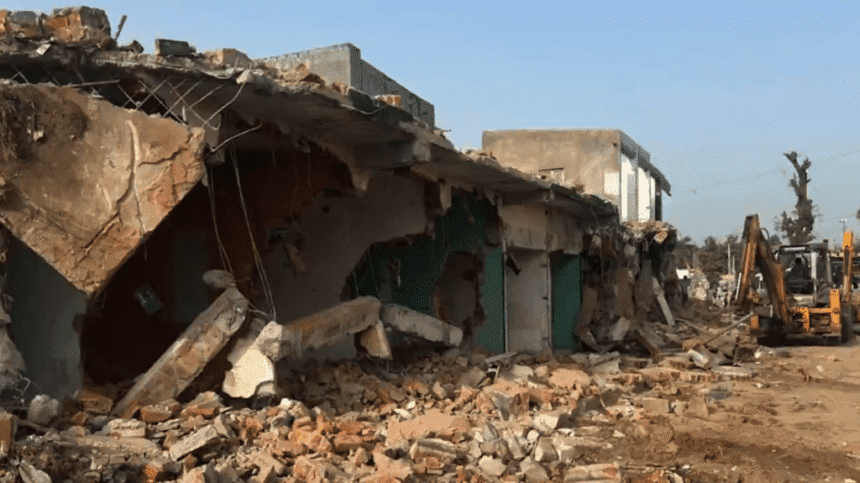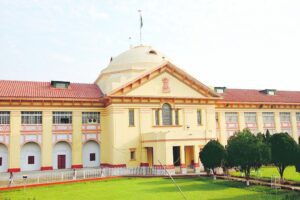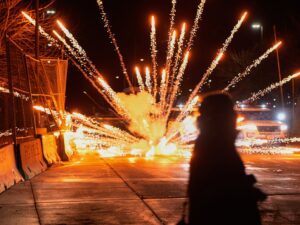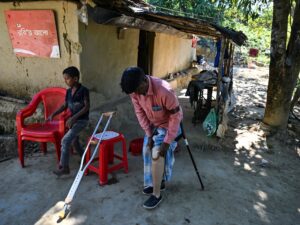On October 9, nearly 180 houses and shops in Bahiyal village of Gujarat’s Dholka Taluka were demolished, primarily affecting Muslim residents. The authorities described this action as part of an “anti-encroachment drive.” However, local critics and residents have labeled it another case of “bulldozer justice,” suggesting it targets the Muslim community following recent communal tensions.
The unrest in Bahiyal was ignited by two viral WhatsApp statuses—one stating “I Love Muhammad” and the other “I Love Mahadev”—which emerged during the Hindu festival of Navratri. This incident adds to a broader pattern of state-facilitated repression against Muslims, particularly in connection with the “I Love Muhammad” campaign. The resulting clashes led to arson and stone-throwing, resulting in the detention of nearly 60 individuals and involvement from over 200 others. Reports from the Association for Protection of Civil Rights (APCR) indicate that approximately 4,505 Muslims have been booked, with 265 arrested across North India.
In Bahiyal, 186 properties were deemed “illegal,” with 178 demolished, except for eight whose owners filed appeals in the High Court, as reported by The Indian Express. Prior to the demolitions, local Muslim residents claimed that police entered their homes at night, detaining young men arbitrarily and behaving improperly with women. Additionally, police allegedly paraded arrested Muslim youth through the town.
Residents assert that members of Hindu organizations, some arriving from neighboring areas, vandalized their homes in the presence of police, assaulting women and children. The Muslim community is reportedly suffering significant losses, having lost both their homes and livelihoods. Authorities contend that the demolished structures belonged to those accused of involvement in the Navratri violence and that they were illegal constructions.
A tweet from DGP Gujarat confirmed the demolitions, stating, “186 illegal structures demolished. Legal action against illegal activities of anti socials shall continue.” This operation saw 400 to 500 police officers supervising the demolition of entire neighborhoods, primarily inhabited by Muslims.
According to Gandhinagar Superintendent Ravi Teja Vasamsetty, the government identified the alleged encroachments within ten days and issued prior notices. However, residents questioned the fairness of providing just one day’s notice for demolishing properties built over years. Some reported police warnings against approaching the demolition site, implying severe consequences.
Mustaqeen Malik, a shop owner who lost 20 shops, expressed frustration over the situation, stating, “We were given just one day to clear everything. They told us, ‘Bulldozer will come tomorrow.’” He lamented the targeting of the Muslim community and emphasized the severity of their current condition.
This incident raises concerns about adherence to a key Supreme Court ruling mandating that properties cannot be demolished without proper notice and sufficient time for response from affected individuals. The landmark judgment from November 2024 prohibited arbitrary demolitions as a punitive measure, stating that the practice of “bulldozer justice” is illegal. It further asserted that demolishing a person’s home based solely on alleged criminal involvement, without due legal process, infringes on the rule of law and the Fundamental Right to Shelter as outlined in Article 21 of the Constitution. The Court stressed that the executive cannot take on the roles of judge, jury, and executioner.
The post outlines the plight of the Muslim community in Gujarat, highlighting the broader implications of such demolition actions in the context of legal rights and community safety.
Tags: Gujarat, communal tensions, Bahiyal, Muslims, bulldozers
Hashtags: #Gujarats #Bahiyal #Muslims #lose #homes #shops #bulldozers #communal #tensions










